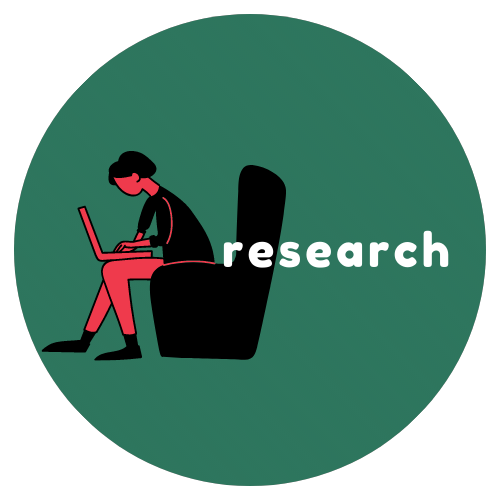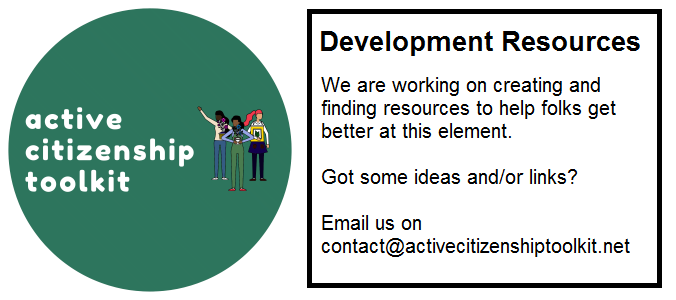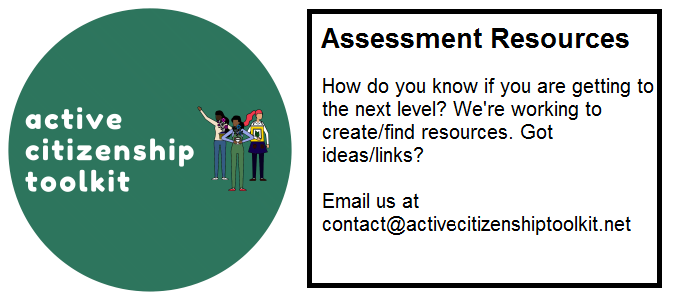Element Descriptor

Covers a dazzlingly wide range of tasks and professions. For most social movements, research will means gathering a range of detailed, statistical or contextual information on a given issue. Some of this may be widely known to others outside of social movements; some it may be hidden or not in the public domain.
Level descriptors
| Novice | Practitioner | Expert | Ninja |
|---|---|---|---|
| Happy to undertake a short research task with a set brief and reasonable time-scale, gathering information in the public domain. The information may be scattered (e.g. Council documents) but does not require any complex methodologies, tools or software. They will be able to present the findings of their research in a way that makes it easy for others to re-use or incorporate into other work. | Confident carrying out complex research tasks with little guidance. Such research may consist of: identifying the sources of information; synthesising a large amount of data; extracting the necessary information from very complex or dense information. The practitioner will be able to apply these skills to a wide range of topics, including those beyond their area of immediate expertise. They are likely to be involved in the analysis of the findings, rather than merely their passing them on for others to interpret. | Concurrently carrying out a range of research tasks, using a wide range of sources and methods. May be able to track down information that is difficult to find or not in the public domain. Able to design feasible research tasks for others and monitor their completion. Quickly able to synthesise the findings and repurpose the research for a range of audiences and purposes. | Can find the answer to anything, at any time. And tell you exactly what it means. |
Element Overview Essay
This is a draft. If something doesn’t make sense, or you see typos, or if you have further ideas, please email us on contact@activecitizenshiptoolkit.net
The causes of research being done badly, simply that people don’t understand sometimes what counts as good evidence and what counts as not very good evidence. A quick Wikipedia, a quick Google, that’s not research. You need to know what it is that you need to know, where you might be able to find it, and whether you can be sure that it is the real deal.
Now, that kind of informational literacy and that understanding of how to assess sources and to realise that just because it’s in a textbook, or just because it’s on official documents, doesn’t mean it’s the real deal, is something that doesn’t seem to get taught in school and I could tell you horror stories about the elite University, I taught at and the tools the undergraduates had and did not have at their disposal.
The consequences – if you don’t have good research skills and you don’t have good data, you will get your ass handed to you, you will not be credible, you will not be able to, on the whole, sustain a campaign about a specific injustice or issue that you want to change, because you’ll be flailing around with three word slogans and moral outrage and those things just don’t get you through the night.
You just have to get better at research. And you have to figure out where to find information, where to store it, how to store it. So information management, freedom of information act requests interviews. Now fortunately, there are lots of “how to” guides about this and as you get better at it, by and large, you’re probably going to develop a taste for it and want to get better still, because finding stuff out is fun.
Finding out stuff that your lords and masters don’t want you to know is fun and information is not power. Power is power. But information can help you legitimise your side and deegitimise theirs.
So good luck
Development Resources

Assessment Resources

